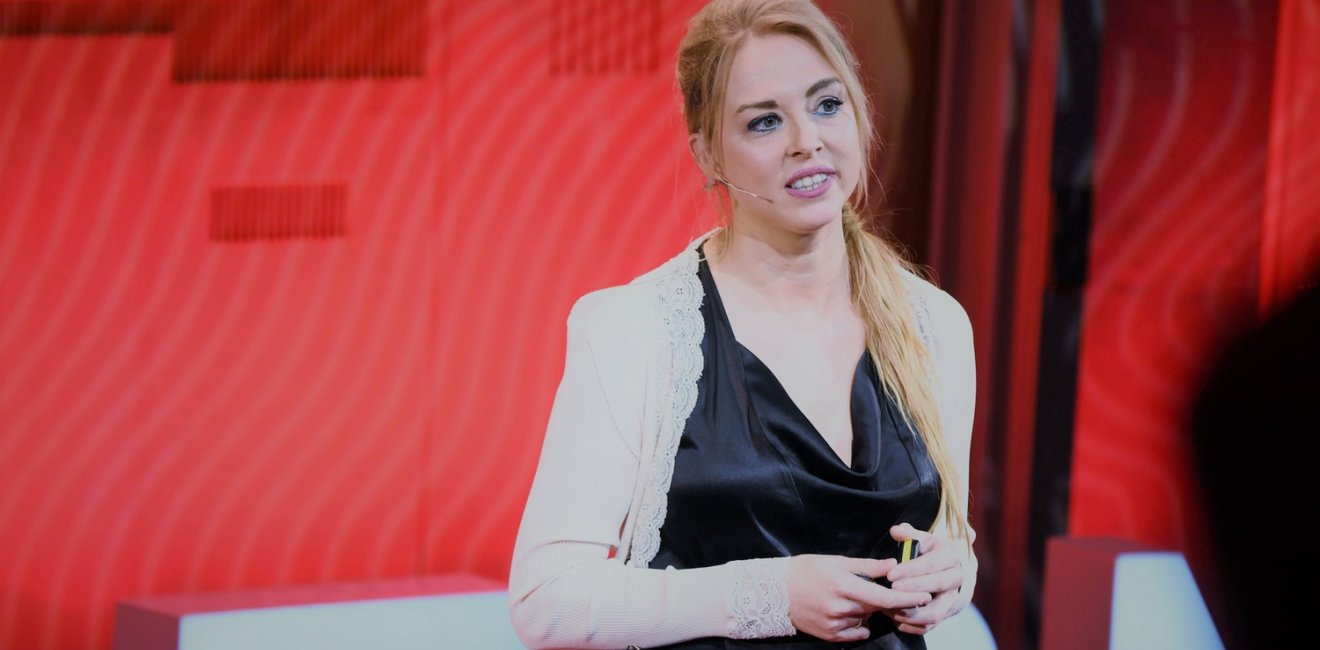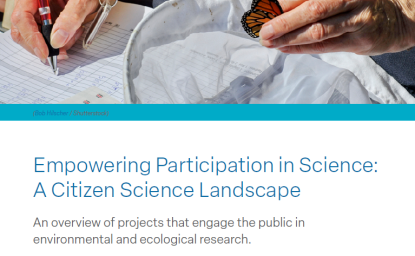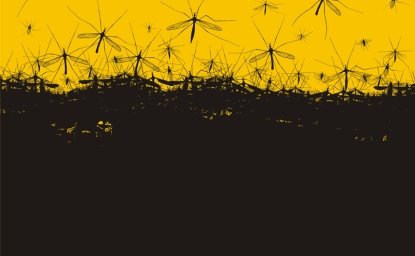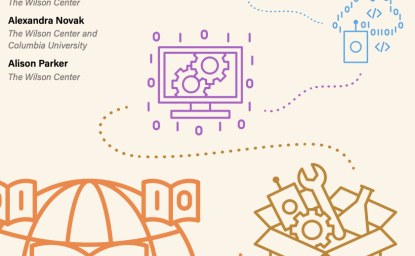
"Citizen health innovators have skin and soul in the game, meaning they have the curiosity and courage to develop and share experiential knowledge about diseases. They dare to improve medical techniques and co-create solutions hand in hand with doctors and researchers.”
---Eleonore Pauwels
Q&A with Eleonore Pauwels
 Wilson Center NOW host and managing editor John Milewski spoke with Director of the Citizen Health Innovators Project Eleonore Pauwels about this new world of health innovation.
Wilson Center NOW host and managing editor John Milewski spoke with Director of the Citizen Health Innovators Project Eleonore Pauwels about this new world of health innovation.
John Milewski: Who are “citizen health innovators” and what types of activities are they conducting?
Eleonore Pauwels: Fueled by their own dreams and needs, citizen innovators are changing the face of healthcare. They are people who have “skin and soul in the game” – meaning the curiosity and the courage to develop and share experiential knowledge about diseases. They are patients and citizens who dare to improve medical techniques and co-create solutions hands in hands with researchers.
One of them is Tal Golesworthy, a bright and resolved engineer who, suffering from a genetic disease damaging his heart, designed a surgical device that would save him and other patients from a riskier procedure. Dana Lewis, a digital communication specialist suffering from Type 1 diabetes, created an “artificial pancreas” based on an algorithm that calculates the needs for insulin based on a patient’s blood sugar levels. To work on a therapy for her rare genetic disease, Sonia and her husband, Eric, left their consultant jobs and became PhD scientists at the Broad Institute. And to find a cure for their daughters suffering of the rare neuro-degenerative Batten disease, a couple raised millions on a crowdfunding platform to hire their own research team.
In brief, citizen health innovators are those who decide not to wait to shape their own medical futures.
Milewski: Is this similar to citizen science with a specific focus on health?
Pauwels: Like citizen scientists and makers, health inventors are part of a revolution that aims at democratizing access to science, including genetic technologies and biomedical research and innovation. But, while citizen scientists’ involvement varies from data-providers, to gamers and investigators, most health inventors share a deep commitment to actually contribute tools, data and knowledge that will directly impact health challenges, such as improving treatments for a rare or chronic disease. This is what I mean by inventors having “skin and soul in the game.”
Milewski: How significant is the potential for what these innovators can contribute?
Pauwels: The sky is the limit. Some health inventors like Eric and Sonia have become published scientists in their quest to find a treatment for Sonia’s rare genetic disease. The parents of Charlotte and Gwenyth Gray have been able to fund their own scientific team to work on a cure for Batten disease. Collaborating with engineers at Autodesk, an 11-year old girl, Jordan Reeves, designed her own glittery prosthetic using a home 3D printer. A dad, whose young son suffers from the rare Marfan disease, is learning the legal requirements to build a database of a hundred Marfan patients.
Citizen health innovators address crucial user-centered issues, too often neglected by our healthcare system. Sometimes, their design is vetted by peers and doctors, who have become their collaborators in a shared innovation journey. This form of innovation is enabled by crowdfunding and leads to small start-up ecosystems.
You see, there are no limits to the ingenuity and courage of these citizen health innovators.
Milewski: What need is the Citizen Health Innovators Project intended to fill?
Pauwels: While these inventors are reshaping their involvement in health research and practice, they are raising new ethical, safety and governance issues for policymakers, practitioners, patients and society as a whole. The Citizen Health Innovators Project will focus on developing adaptive oversight mechanisms in collaboration with citizen health innovators and enabling platforms such as community bio-labs and crowdfunding. The project will enable structured engagement between this emerging ecosystem and existing research and regulatory institutions.
In a nutshell, the goal is to foster a culture of empowerment and responsibility for health inventors. I want to think creatively about how to help patient innovators share their data, evidences, tacit knowledge, value trade-offs and ethical concerns in on-going conversations with regulators and society at-large. What can patients teach us about user-centered research and design? How can regulators help them embed “responsible governance” mechanisms into their endeavor? How, in turn, can this culture of responsibility confer legitimacy to research led by patients?
Milewski: What outcomes do you hope for and anticipate?
Pauwels: I hope that engaging with health inventors all over the country will ensure that as citizen participation in health research flourishes, social benefits are maximized and risks minimized. This project is the beginning of a long-term process to create public trust and support for such citizen participation in health. The Wilson Center will also build on our past public engagement work, including multimedia approaches such as podcasts, interviews and documentary films on health inventors. We will also document and promote inventors’ success stories beyond early adopters to bridge the gap to the next round of pioneers.
The effort to provide citizen and patient inventors with more legitimacy is a collective endeavor that needs new stories and practices. Will you join us?





